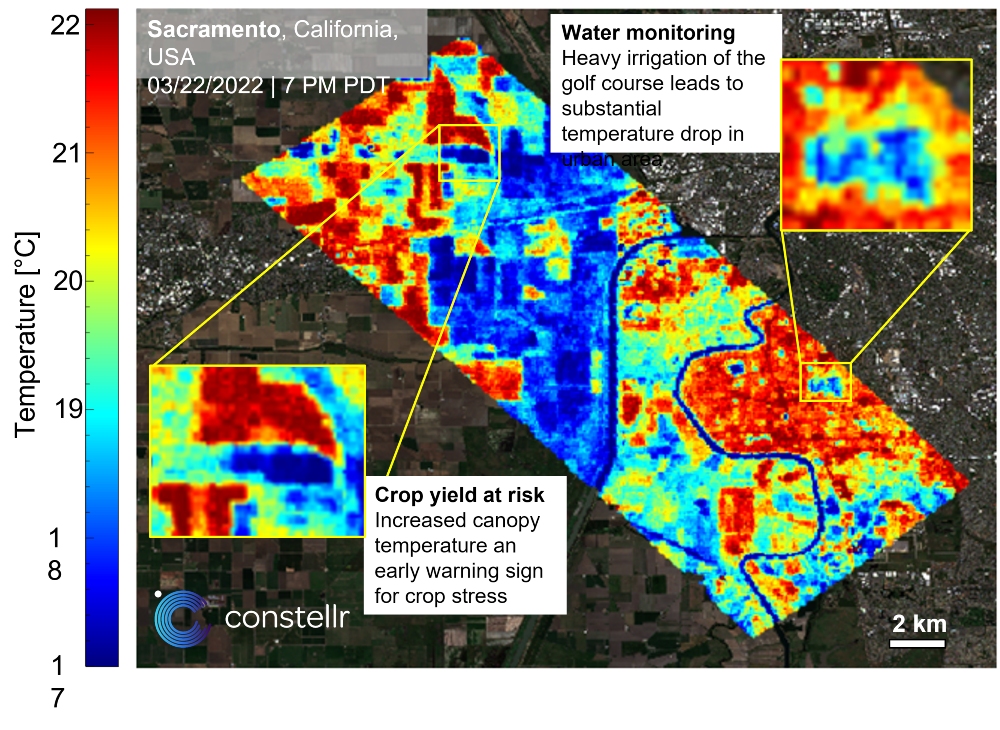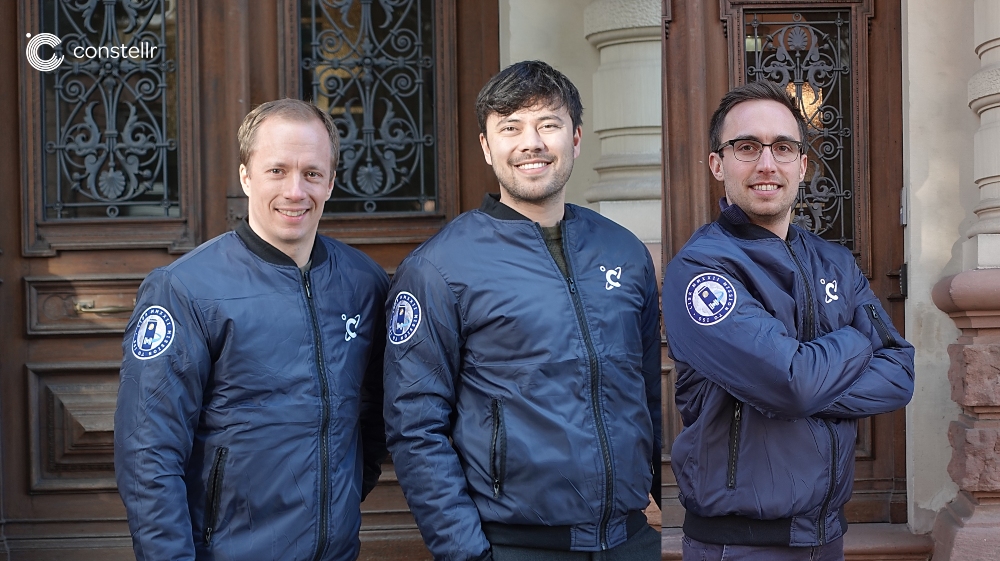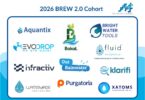For millennia, farmers have inspected the health of their crops manually. They walk through their fields and check the appearance and growth of their crops and look for signs of stress, pests and diseases and weed competition. As you can imagine, this process is arduous and often inaccurate, especially over large areas. And it relies on something that most farmers don’t have much of – time.
But this could all be changing with the help of the world’s first globally scalable crop water monitoring system.
The technology is the brainchild of constellr, a German deep-tech startup that operates at the interface of Earth Observation and agriculture. A spin-off of the Fraunhofer, Europe’s largest organisation for applied science, constellr’s tech comprises constellations of microsatellites, equipped with thermal infrared and hyperspectral imaging instruments, that gather daily, global land surface temperature data.
This data is used to compile coloured land surface temperature heatmaps that display plant stress and water availability at sub-field level. This data is used to provide insights into crop health and water stress, and deliver precise and plot-level water monitoring and yield forecasting.
constellr says its technology can identify changes in crop health days to weeks before these signs become visible, enabling farmers to react early to, and mitigate for, potential crop risks and losses.
This advanced warning, which the firm says differentiates it from existing satellites, helps reduce the risk of crop failure or damage, allowing more accurate crop yield forecasting.

Constellr creates coloured land surface temperature heat maps that display plant stress and water availability at sub-field level.
“This transparent and predictive crop stress data has a significant positive impact across food supply chains and resulting food and water security,” the startup said in a press statement.
Globally, more than 70% of freshwater is used for agriculture according to the Food and Agriculture Organisation of the United Nations (FAO), and a whopping 60% of that goes to waste due to inefficient irrigation and planting methods. The UN also estimates that 50% more food will be needed by the Earth’s population by 2050, leading to a massive increase of freshwater demand for irrigation.
Currently, a lack of transparent data on crop stress at a macro and field level has a material impact across supply chains, with unmitigated water stress causing major crop yield losses.
constellr’s satellite images provide high-precision data that can be used, for example, to determine the water requirements of crops that have already been cultivated or predict an impending drought. This gives farmers time to implement mitigation measures such as targeted irrigation. Through early detection of water stress, constellr believes it can contribute to enhanced yields, reduced operating costs and optimised resource and supply chain management.
Within five years, the startup looks to help save 60 billion tons of water and avoid 14 megatons of CO2 being emitted while generating billions of euros in gross benefits for farmers.
And they’re not the only ones who see the potential.
In November, constellr secured $10m in seed funding which it will use to develop its first two satellites, conclude its existing pilot programs and develop its processing platform.
“The team has worked relentlessly on all fronts, removing obstacle after obstacle, getting a first camera in space and pilot customers onboard,” said Max Gulde, constellr co-founder and CEO, when the funding was announced in November.
Gulde continued: “And now, we are incredibly proud to partner with what will become our mission control: Lakestar, VSquared, FTTF and IQT for deep tech, Amathaon Capital, Natural Ventures, EIT Food and Next Humanity for agriculture, and Seraphim, OHB Venture Capital and Spacebel for space. Together, we just ignited the second stage towards a global water monitoring system.”
One of the main investors, Abu Dhabi-based Natural Ventures, is an impact-driven fund that invests across the water – energy– food nexus globally.
“Food is intrinsically linked to the water cycle. constellr’s potential to determine the water need and water availability across every field on the globe, every single day is a game changer,” said Maarten ter Keurst, Managing Partner at Natural Ventures, who has years of experience in water-related investing.
Natural Ventures was formed to fund solutions that tackle one or more global food-water-energy nexus challenges. “That is one of the reasons why you are likely to see us investing in technologies which have an application in water, but do not only (or even mostly) operate in water,” the firm says on their website.
“Being able to irrigate accurately boosts efficiency and often increases yield, improving food and water security simultaneously,” Ian Summerfield, Operating Partner at Natural Ventures, told H2O Global News.
Summerfield has 35 years of experience in the farming production and food processing industries, and says he sees ‘enormous potential’ in constellr’s technology and its ability to help to address the impact of climate change on the world’s water system.
He continued: “The [constellr] solution isn’t just for farmers, it can be used to shape government policies and predict risk for agricultural insurers.
“We’re already facing food shortages globally, and I truly believe that watertech has a crucial role to play in improving the efficiency and sustainability of agriculture.”
This article was first published in our Issue 4 Magazine – Watertech’s Role in Food Security







